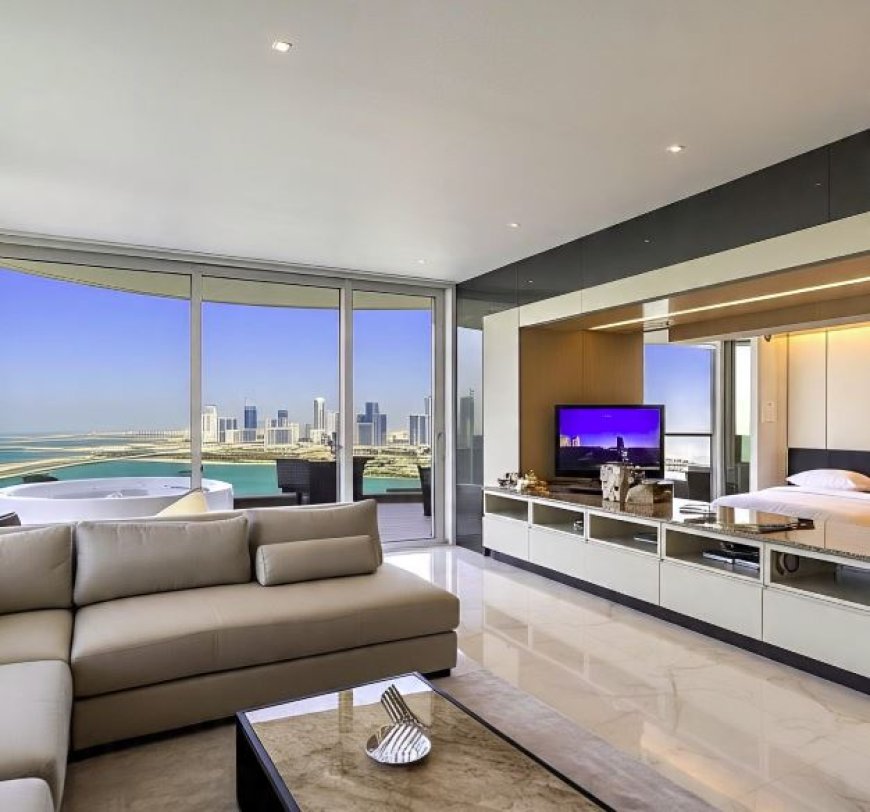Leasing vs. Buying Commercial Office Space in West Bay, Qatar: What You Need to Know

West Bay, Doha’s glittering business district, is a hub for multinational companies, upscale real estate, and government entities. But before putting down roots in this skyline-studded neighborhood, there’s a fundamental question every entrepreneur or business leader must answer: Should you lease or buy your commercial office space?
Let’s break down the key differences, advantages, and drawbacks of leasing versus buying office space in West Bay, to help you make the right decision for your company’s needs, goals, and bottom line.
1. Initial Investment and Capital Allocation
Leasing: Leasing requires significantly less upfront capital. This is especially appealing for startups and small to mid-sized companies that need to preserve cash flow for operations, marketing, or scaling.
Buying: Purchasing a commercial unit in West Bay involves a hefty initial investment. You’ll need to cover the full price or a large down payment, along with fees for registration, legal documentation, and possibly mortgage interest. This can tie up capital that could otherwise be used for business development.
In short, leasing is the go-to for flexibility and lower financial commitment, while buying is for businesses with solid financial footing and a long-term presence in mind.
2. Flexibility and Business Growth
Leasing: As your business evolves, your space needs might change. Leasing allows you to upgrade to a larger space, downsize, or move to a better location without being locked into a long-term asset.
Buying: Buying office space commits you to a specific location and configuration. If your business grows or shifts in strategy, selling or leasing out your owned space can take time and involve additional costs. However, for companies with a stable operational model, owning can offer continuity and stability.
Companies in fast-changing sectors like tech or media often favor leasing, while law firms or consultancies may prefer ownership for the prestige and permanence it provides.
3. Control Over the Property
Leasing: With leasing, control is limited. Landlords typically restrict modifications or major renovations. Even branding and signage may be subject to approval. And lease terms can change with market shifts, leaving tenants vulnerable to rent hikes or non-renewal.
Buying: Ownership gives full control. You can renovate, redesign, and customize the space to reflect your brand identity and workflow. You’re not subject to someone else’s rules, and your monthly expenses are more predictable if you own the property outright.
For companies that value autonomy and a fully branded physical experience, ownership has the edge.
4. Tax and Legal Considerations in Qatar
However, expatriates and foreign-owned businesses must operate under specific rules when acquiring property, especially in designated investment zones like West Bay.
Leasing offers a simpler legal route, as most lease agreements are straightforward and don't involve property registration. Buying, however, may require navigating local laws and working with a Qatari partner or real estate agent familiar with freehold policies.
Learn more about property ownership laws via Wikipedia on property law and real estate practices globally.
5. Long-Term Costs and Investment Return
Leasing: Over time, leasing may result in higher cumulative costs without building any equity. The money spent on rent is essentially an operational expense with no long-term financial return. However, these expenses are often tax-deductible, depending on your business setup.
Buying: Owning the property turns a cost into an asset. Over the long term, especially in a high-demand area like West Bay, the value of your office space could appreciate, offering potential resale or rental income.
For investors or companies thinking long-term, this makes buying a more attractive option—though it comes with market risks and maintenance responsibilities.
6. Maintenance and Operational Responsibility
Leasing: Most leases in West Bay come with maintenance and facility management included or shared with the landlord. This reduces administrative burdens and keeps costs predictable.
Buying: If you own the space, you’re responsible for all repairs, upgrades, and general upkeep. While this grants more control, it also means more responsibility.
That said, luxury developments in West Bay often have well-managed service charges covering common areas and external maintenance, which lightens the load for owners.
7. Image, Prestige, and Stability
In places like West Bay, image matters. Owning an office in West Bay lends prestige and signals long-term commitment to clients, partners, and employees. It's a permanent stake in the heart of Qatar's economy.
Leasing, while practical, can make your business seem more transient—especially in sectors where trust and consistency are key.
For industries that thrive on reputation—legal, finance, high-end consulting—buying may be worth the upfront cost.
8. Market Trends and Timing in West Bay
Real estate values in West Bay have fluctuated over the years, driven by global economic conditions and local events like the FIFA World Cup and ongoing infrastructure growth. Currently, with Doha maturing as a regional business hub, property values show steady interest from both local and foreign investors.
If you're unsure about market timing, leasing gives you flexibility to monitor trends. If you're confident in long-term value appreciation, buying can be a strategic financial move.
You might also want to read about things to consider before buying a villa in Qatar for a broader view of real estate investment nuances in the country.
What's Your Reaction?



















































